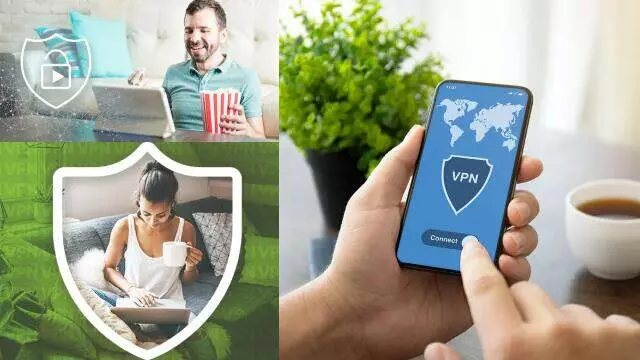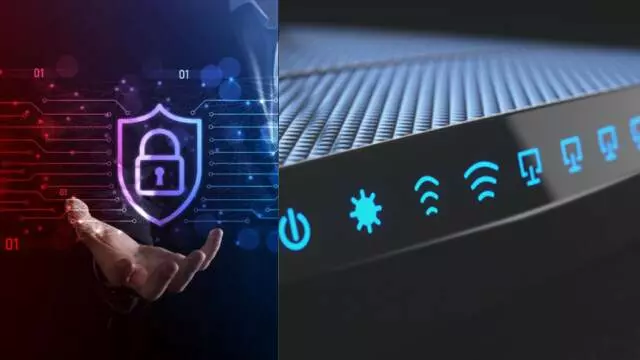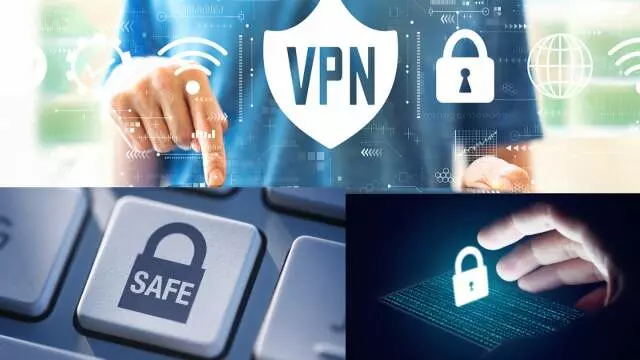Understanding the Importance of VPNs for Home Use
Virtual Private Networks (VPNs) have become increasingly popular in recent years, and their usage is no longer limited to businesses and government agencies. More and more people are using VPNs in their homes, to protect their online activities and secure their personal information.
In the age of the internet, where almost every aspect of our lives is online, it’s more important than ever to take online security seriously. By encrypting our internet connections and hiding our online activities, VPNs offer a powerful defense against hacking, phishing, snooping, and other cyber-attacks.
In addition to securing our online activities, VPNs also allow us to access restricted websites and services, and to bypass censorship. This opens up a world of possibilities, from streaming content from other countries to staying connected with loved ones in restricted regions.
In conclusion, VPNs play a critical role in securing our online activities, protecting our personal information, and enhancing our internet experience. With the growing number of online threats, using a VPN for home use is becoming an essential step towards a safer and more secure internet experience.
How a VPN Can Protect Your Home Network
A Virtual Private Network (VPN) can provide a secure connection for your home network. A VPN creates a private, encrypted connection between your device and the internet, protecting your online activities from prying eyes. This is especially important when using public Wi-Fi or accessing sensitive information, as it helps protect against cyber threats such as hacking, identity theft, and data theft. By routing your internet traffic through a VPN server, you can also bypass geo-restrictions and access content that may not be available in your country. Additionally, using a VPN at home can improve your online experience by helping you avoid bandwidth throttling, increasing your internet speed, and providing anonymity. Overall, a VPN is an essential tool for ensuring the security and privacy of your home network.
The Risks of Not Using a VPN at Home
Not using a VPN at home can leave you vulnerable to a range of cyber threats. When you access the internet without a VPN, your online activities can be easily monitored and your sensitive information, such as passwords and bank details, can be stolen by hackers. Public Wi-Fi networks, in particular, are a prime target for cyber criminals, as they are often unsecured and lack proper encryption.
Furthermore, your internet service provider (ISP) can track and sell your online data, affecting your privacy. Moreover, without a VPN, you may also be unable to access certain content due to geo-restrictions. By not using a VPN at home, you risk exposing your personal information, financial information, and online activities to potential cyber criminals, putting yourself at risk of identity theft, financial fraud, and other serious security breaches.
What to Look for in a VPN for Home Use
When choosing a VPN for home use, there are several factors to consider. Firstly, it is important to make sure the VPN offers robust encryption to protect your online activities and data. Secondly, the VPN should have a strong privacy policy to ensure that your personal information is not shared with third parties. Additionally, it is recommended to look for a VPN with a large server network, as this allows for greater flexibility in terms of choosing the location you want to connect from. Furthermore, a VPN with a user-friendly interface and 24/7 customer support can make it easier for you to set up and troubleshoot any issues. Overall, it is important to carefully research and compare VPN options to find one that fits your needs and offers the level of protection you require for your home network.
Setting Up a VPN on Your Home Router
Setting up a VPN on your home router can provide enhanced security and privacy for all devices connected to your home network. To do this, you will need to choose a VPN provider and download their software on your router.
The steps may vary depending on the router model and VPN provider, but the process typically involves logging into your router’s admin page, adding the VPN server information, and enabling VPN functionality. Additionally, it’s important to make sure the VPN provider has a router app for easy setup and that it supports the VPN protocol you need. By setting up a VPN on your home router, you can secure your internet traffic, protect your privacy, and prevent unauthorized access to your home network.
Alternatives to Setting Up a VPN on Your Home Network
If you’re looking for ways to secure your home network beyond using a VPN, there are several alternatives you can consider. For example, you can use a firewall to block unauthorized access to your network. Another option is to use a guest network for visitors to access the internet, separate from your main network. Additionally, you can use encryption tools to protect sensitive data that’s transmitted over the internet, such as using HTTPS for web browsing. Another option is to use virtual private cloud (VPC) services, which provide a secure, isolated network environment in the cloud. Ultimately, the key is to take steps to secure your home network, whether you choose to use a VPN or explore other options
Conclusion: The Importance of Securing Your Home Network with a VPN
In conclusion, using a VPN on your home network is an essential step to protect your online privacy and security. A VPN can encrypt your internet traffic, hide your online activities from prying eyes, and prevent cyber threats from compromising your home network.
While there are alternatives to VPNs for home use, such as anti-virus software and firewalls, a VPN provides the most comprehensive protection for your home network. By understanding the importance of VPNs for home use and taking the necessary steps to secure your network, you can ensure that your online activities are safe and secure from cyber threats.




